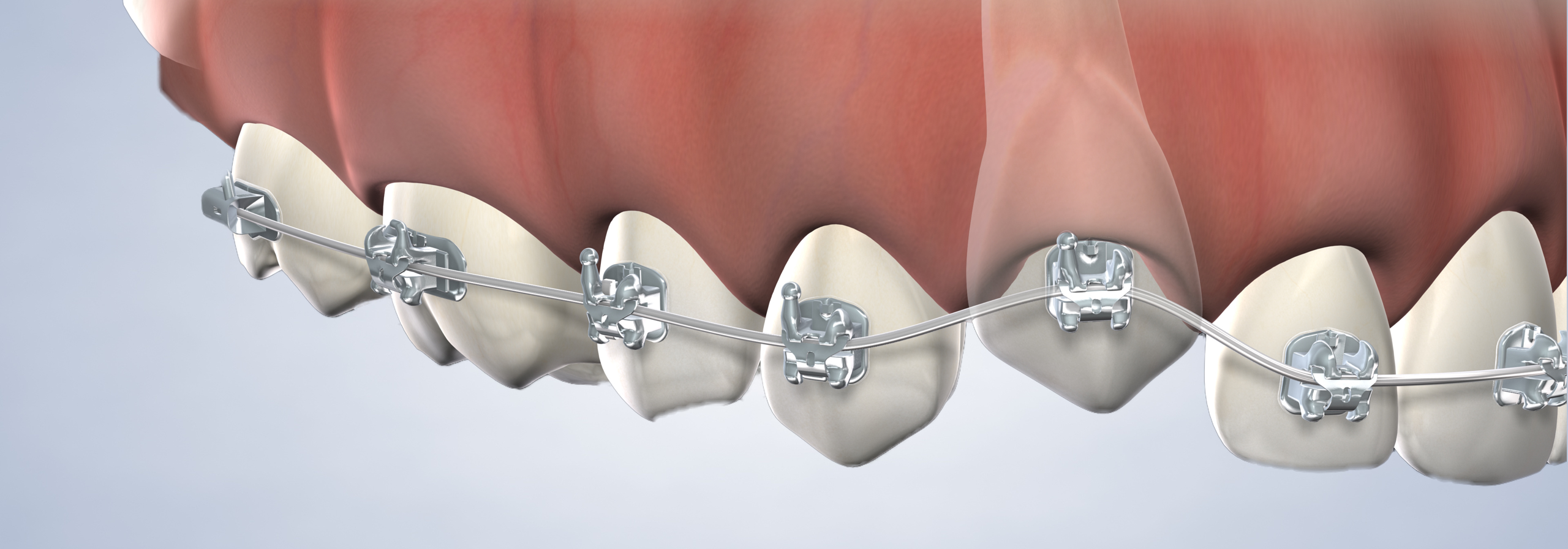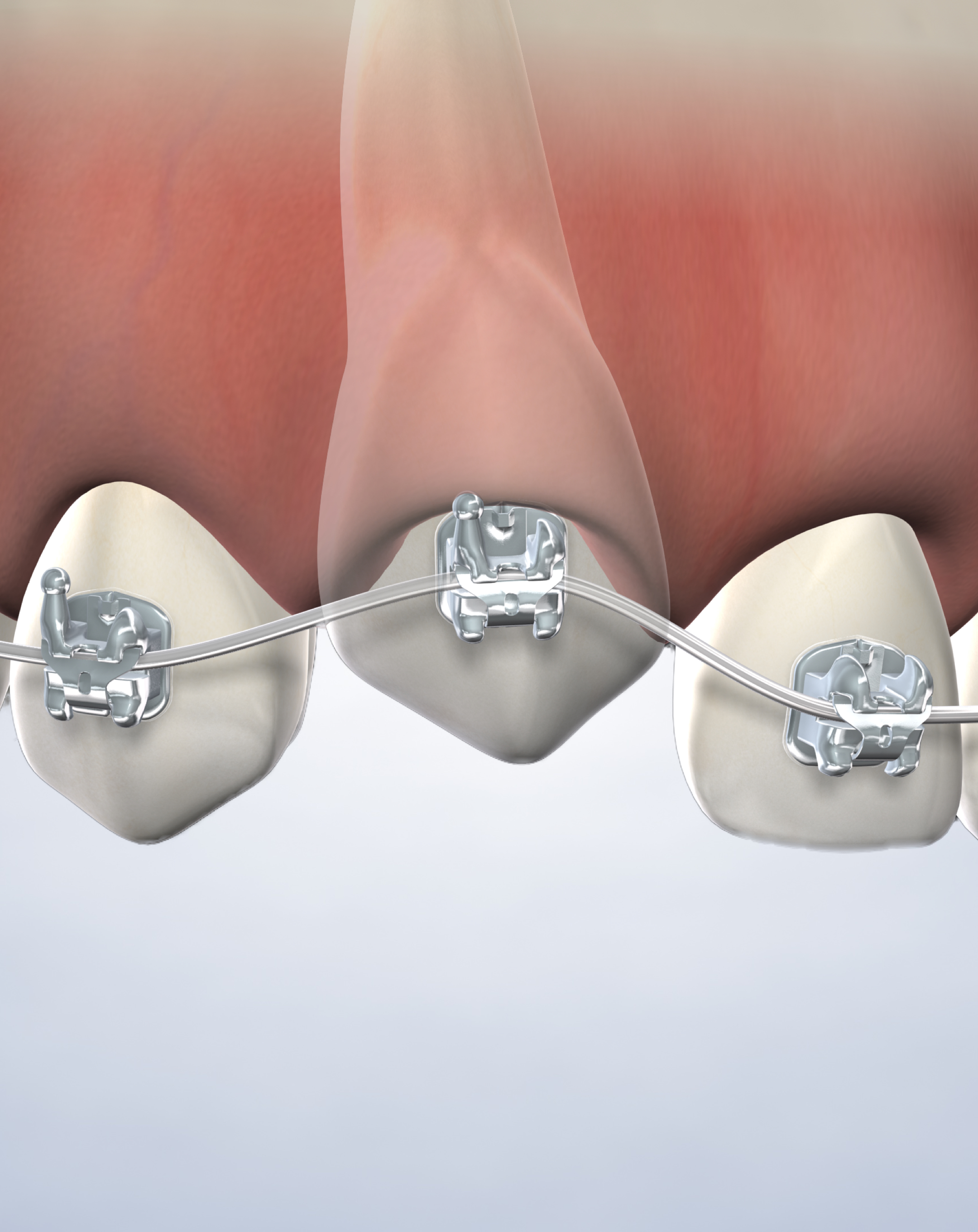



Impacted Canines
Ensure Impacted Canines Properly Erupt and Function
The canine teeth, also known as cuspids, are important for biting and tearing food. They have some of the longest and strongest roots of any human teeth. Canines are also important to the development of your overall bite and the alignment of your other teeth. As a child grows, the permanent teeth erupt at different ages. It is important to make sure normal eruption occurs for incisors, canines, premolars, and molars.
Unfortunately, canines are more likely to become impacted than other teeth. Impacted teeth are trapped partially or fully beneath the gums, either due to structures blocking the growth track or other problems. Impacted teeth have a higher risk of causing infection, and if not treated promptly, they can become stuck in the gums. Oral surgeons and orthodontists can prevent and treat impacted teeth.
If you or your child have an impacted canine tooth, we invite you to contact us at Oral Surgery Group for a consultation with Dr. Philip Engel, Dr. Richard Stern, Dr. Constantne Simos, Dr. Michael Stern, Dr. Amy Tanchyk, and Dr. Rohan Prabhu. We have offices in New Brunswick, East Brunswick, and Middlesex, NJ, and treat impacted canines for patients of all ages.
Why Do Teeth Become Impacted?
The most common teeth that become impacted are wisdom teeth and canine teeth. Wisdom teeth are not necessary for proper oral function and are simply removed. Canine teeth, however, play an important role in your oral health and every effort is made to help them function properly. There are a few reasons that teeth can become impacted. Some of the reasons include:
- Overcrowding or a lack of adequate space for teeth to grow in
- Cysts, growths, or other unusual structures blocking the tooth’s path
- Baby teeth not falling out in time for secondary teeth to come in
Regular dental exams are the most effective way to ensure none of these problems are developing. At these exams, a general dentist takes X-rays of the teeth. If an impacted canine tooth is discovered, he or she will refer you to an oral and maxillofacial surgeon for treatment. Early detection is key to the most optimal outcome.
Having regular dental exams before adult teeth develop (between ages 7 and 10) can help prevent them from becoming impacted. An oral exam tracking the progress of canine teeth beneath the gums involves a panoramic X-ray or 3D scan to determine the exact location of the teeth. If the growth track is blocked and the teeth cannot erupt naturally, your dentist, orthodontist, and/or oral surgeon will provide treatment to help the tooth emerge properly.
The Process of Treating Impacted Canine Teeth
During your first visit, we will take 3D scans of your mouth to view the position of your teeth. Before performing any type of surgery, we will discuss your options for anesthesia and help you select the right option for your level of comfort. The treatment for impacted teeth will depend on the reason the canines won’t emerge and the developmental stage of your teeth.
If adjacent teeth are blocking the path of the tooth, sometimes orthodontics alone (such as braces) can clear the path for growth. When the surrounding teeth are out of the way, the tooth will come through on its own.
Overdue baby teeth can keep the adult teeth from erupting normally. Extracting the baby teeth and exposing the adult teeth can allow them to grow in.
If your adult teeth have been trapped behind the gums for too long (past age 11 or 12), they likely will not grow in on their own, even if the growth track is cleared. As the roots of the teeth develop, they start to fuse with the bone, creating a more secure hold. In these cases, exposure and bonding may be able to save the teeth. Your oral surgeon will expose the impacted tooth from beneath the gums and attach a tiny bracket and chain to each tooth. Then, your orthodontist will use the tiny chain with your existing braces to gently pull the tooth into position.
What Happens If an Impacted Canine Tooth Remains Untreated?
If impacted canine teeth go untreated well into the teen years and early adulthood, the roots of the teeth will develop fully while trapped beneath the gums, making it impossible for the teeth to emerge. The impacted teeth can be extracted by an oral surgeon and replaced with dental implants. Our oral surgeons are experts at dental implant placement, and we will do everything possible to save your natural teeth before discussing other treatment options.
When the canine teeth cannot function properly, your other front teeth can shift out of alignment. You may not be able to bite and tear food effectively. When you cannot properly brush and clean the tooth, it can start to decay. This tooth decay can spread to other teeth, causing irreversible damage.
Our oral surgeons at Oral Surgery Group work with patients of all ages, whether you need a simple extraction, full exposure and bonding treatment, or dental implants. We work seamlessly with you, your orthodontist, and your dentist to ensure optimal results. Contact us in New Brunswick, East Brunswick, or Middlesex, New Jersey, for more information or to schedule an appointment.
Types of Anesthesia
We offer several types of anesthesia to ensure patients remain comfortable in our care.
Hear From Our Patients
Decades of Trusted Care
Start your journey to better oral health and a more confident smile at Oral Surgery Group. Our compassionate team of specialists will walk you through every step, answer your questions, and make you feel like a part of our family. Learn more about us or schedule an appointment.







